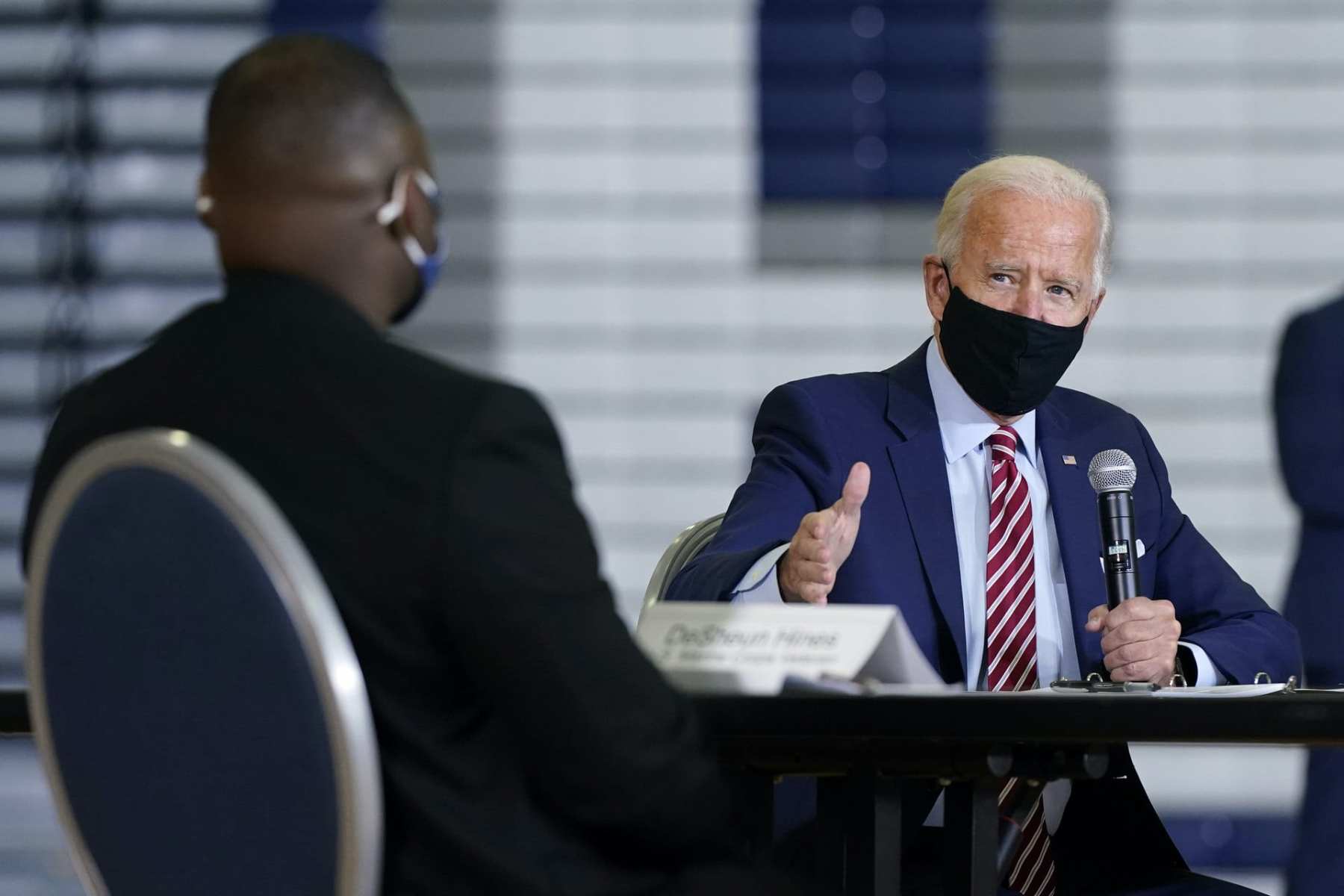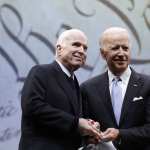As the military’s support of President Donald Trump declines, according to recent polls, Democratic presidential nominee Joe Biden’s campaign is working to woo both veterans and the families of active military members by capitalizing on media reports of Trump’s comments about the military, as well as the support of a high-profile military spouse.
Given the increased diversity of the military — which has been going up for decades even as the total veteran population declines — talking to women and voters of color are key to the Biden campaign’s strategy.
Rory Brosius, an advisor to the Biden campaign on military families, said it’s important to look at the military holistically and consider the role of identity in a service member’s life, as well as how their families, who serve alongside members every day, can be impacted by programs and policies.
“I think there’s a lot of intersectionality on the issues that we deal with in the military community,” said Brosius, whose husband served in the Marine Corps for 10 years. “A Black woman veteran might have an experience unique from a White woman. It’s important to create that space to have these conversations and acknowledge the diversity within our military forces and families.”
According to the U.S. Department of Veterans Affairs, there are more than 2 million female veterans in the U.S. and Puerto Rico, representing nearly 10 percent of the total veteran population. The total population of women veterans is expected to increase about 18,000 women per year. More than 25 percent of all veterans are people of color, and that is expected to increase to more than 35 percent by 2040.
Earlier this summer, the Military Times released a poll showing a decline in the president’s popularity among active-duty service members.
According to the poll, conducted in partnership with the Institute for Veterans and Military Families at Syracuse University, there has been a steady drop in favorable opinion of Trump since the president’s election four years ago. As of August 2020, nearly half of the 1,018 surveyed troops had an unfavorable or very unfavorable opinion of him. Less than 40 percent had a favorable or very favorable opinion, and about 12 percent were neutral.
The military has historically been known to lean Republican. While George W. Bush, a Republican, was in office, a 2009 Gallup poll found that 34 percent of active-duty personnel and veterans were Republican while only 29 percent were Democrats. Trump’s popularity still remains slightly higher than that of Barack Obama, a Democrat, but the latest polls show that more troops would vote for Democratic candidate Joe Biden than Donald Trump.
In early September, The Atlantic published an article alleging that Trump disparaged Americans who died in war as “losers” and “suckers.” Trump denied the story.
Biden himself responded in a statement: “As the proud parents of a son who served in Iraq, we’ve made supporting military spouses, caregivers and children a focus of our service.”
Following the report, Sen. Tammy Duckworth of Illinois wrote a piece of her own. Duckworth, an Iraq War veteran and Purple Heart recipient, argued that Trump’s “personal insecurities endanger America’s national security” and he is “not fit to be commander in chief.” The Biden campaign quickly launched a digital ad campaign geared towards military families, and nearly 500 retired senior military officers, former cabinet secretaries and service chiefs signed an open letter in support of the Democratic nominee.
On September 22, Cindy McCain, the widow of Republican Sen. John McCain, urged Republicans to cross party lines and vote for Biden in the upcoming election. Sen. McCain, who lost to President Barack Obama in the 2008 presidential race, was a naval aviator shot down over Vietnam and spent more than five years there as a prisoner of war. In 2015, Trump criticized the senator: “I like people who weren’t captured.”
“My husband John lived by a code: country first,” McCain said on Twitter. “We are Republicans, yes, but Americans foremost. There’s only one candidate in this race who stands up for our values as a nation, and that is Joe Biden.”
McCain added that Biden “will be a commander in chief that the finest fighting force in the history of the world can depend on, because he knows what it is like to send a child off to fight.”
Some voters are responding to Biden’s message of being a military family member.
Sarah Streyder, an Air Force spouse and a military families advocate for the Biden campaign, said she’s been impressed by Biden’s character and ability to relate on a personal level to the military experience.
“Military spouses and families are as diverse as the communities they come from, but we’re a lot less ideological than people think,” Streyder said. “We’re more pragmatic: less about team red or blue. We’re more about whether you can fulfill the mission.”
Streyder said she’s focused on engaging with military partners and spouses, the overwhelming majority of which are women. These spouses do not have the same kind of restrictions and political boundaries around supporting candidates that their service member partners do. They have a responsibility “to be active, be vocal and give voice to our loved ones,” Streyder added.
“I think if there’s anything we’ve learned from this political moment, it’s that foreign policy is dominated by a lot of men in suits,” Streyder said. “And we need more women in jeans — the military spouses — to mobilize.”
Margo Drakos, an active-duty military spouse based in Fort Bragg and volunteer for the Biden campaign, said she’s been moving around the country for nearly nine years to support her husband while working remotely as an executive of an AmeriCorps program and raising two young children.
“You’re seeing such a diverse cross section of military spouses across this nation and stationed around this world who are in support of Vice President Biden for President,” Drakos said. “We’re deeply troubled by the unpredictability and disrespect that is coming from our current commander in chief.”





